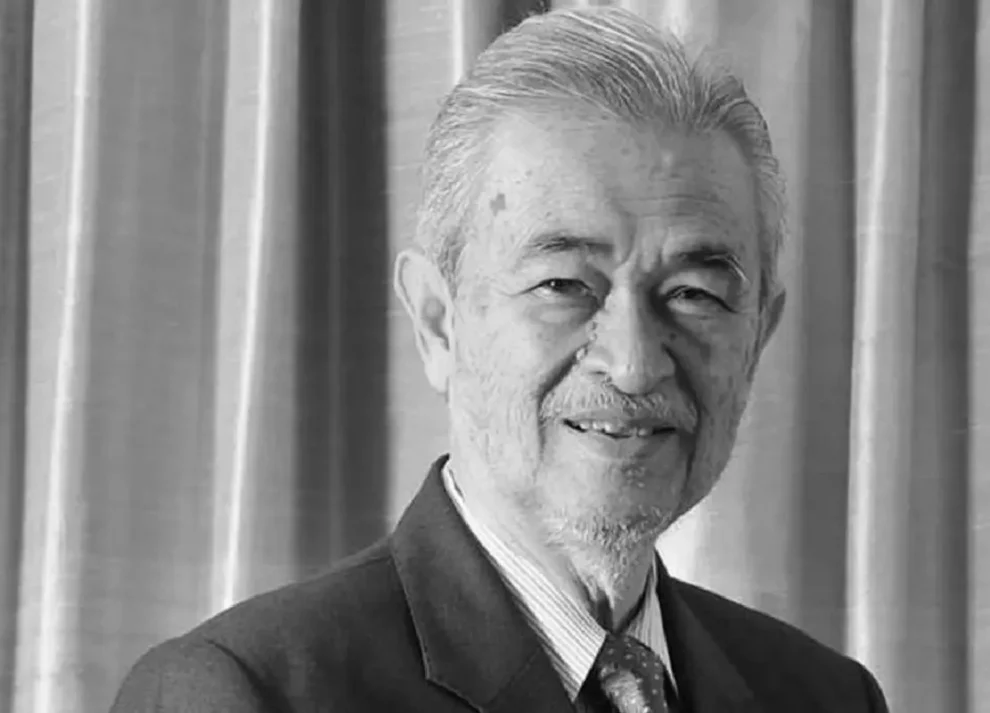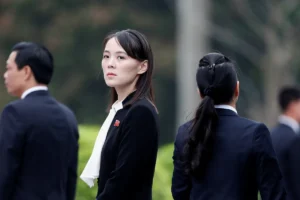Former Prime Minister (PM) of Malaysia Abdullah Ahmad Badawi passed away on Monday at the age of 85.
As reported by Channel NewsAsia, Abdullah, also known as Pak Lah, became Malaysia’s fifth prime minister in 2003, following the resignation of Mahathir Mohamad after 22 years in power.
Pak Lah passed away at the National Heart Institute in Kuala Lumpur at 19:10 local time. This was announced by his son-in-law and former health minister Khairy Jamaluddin in an Instagram post.
Abdullah was admitted on Sunday morning after experiencing breathing difficulties and was immediately placed in the intensive care unit, the institute said in a statement.
“Despite all medical efforts, he passed away peacefully, surrounded by loved ones,” Khairy wrote.
Paying tribute to Abdullah, the National Heart Institute said he was a leader who brought “calmness and affection in public service”.
“His contribution to the country, particularly in fostering unity and good governance, will always be remembered with deep respect and admiration,” the institute stated.
Prime Minister Anwar Ibrahim praised Abdullah’s accomplishments.
“Pak Lah taught us the meaning of humanity in leadership,” Anwar said in a Facebook post. He added that the former prime minister was not just a leader, but also a person with a “big heart”.
Anwar noted that Abdullah had always been a calming figure amid political upheavals, and always behaved politely even when they were on opposite sides. “Such was the great spirit of a statesman,” he said.
Singaporean Prime Minister Lawrence Wong also conveyed condolences to the people of Malaysia.
“During his six-year tenure as prime minister, Tun Abdullah made significant contributions to the social and economic development of Malaysia,” Wong said, adding that Abdullah was a respected leader who helped ASEAN “stand tall in the world”.
Wong said that Singapore was “fortunate to count Tun Abdullah as a friend”.
“Working with him, we deepened cooperation in various areas of mutual interest, such as the development of Iskandar Malaysia, and made good progress on various bilateral issues.
“This laid a strong foundation for the strong ties between the two countries today.”
‘PAK LAH’
Abdullah was born in Penang in 1939. He was the eldest of four siblings born to Khailan Hassan and Ahmad Badawi, a prominent figure in the United Malays National Organization (UMNO).
Affectionately known as Pak Lah—with Pak being a respectful term derived from Bapak (meaning “father” or “sir”) and Lah from his given name, Abdullah.
Abdullah, a scholar of Islamic studies at the University of Malaya, began his career as a diplomat and civil servant in 1964. The following year, he married Endon Mahmood and had two children.
He entered politics in 1966, but became more active in UMNO after his father’s death in 1977.
In 1978, he ran for a parliamentary seat in his hometown of Kepala Batas and won by a majority of 5,029 votes.
Three years later, he was appointed to the Cabinet under Mahathir, serving as a minister in the Prime Minister’s Department.
He then held several other Cabinet positions under Mahathir. Abdullah was appointed deputy prime minister in 1999, following the sudden dismissal of Mahathir’s previous deputy, Anwar Ibrahim, who in 1998 was charged with corruption and sodomy. Critics claimed the accusations were politically motivated.
In 2003, Mahathir resigned, and Abdullah, his self-chosen successor, became Malaysia’s fifth prime minister.
In the following year’s general election, Abdullah received widespread support, campaigning with a pledge to eradicate poverty and eliminate the cronyism and corruption that had been the hallmark of Mahathir’s long tenure. He also embraced a moderate version of Islam aimed at economic and technological advancement rather than religious fundamentalism. However, he faced public criticism for his handling of fuel subsidies, which led to a sharp increase in prices.
Abdullah resigned in 2009, a year after an election that saw the ruling Barisan Nasional coalition lose its parliamentary majority for the first time in the country’s history. He was succeeded by Najib Razak.
Concerns about Abdullah’s health had increased in recent years, and Khairy revealed in September 2022 that Abdullah was suffering from dementia.
The announcement came after family discussions, as many had inquired about the former leader’s health, he said at the time.
Khairy said Abdullah could not remember the names of family members, had difficulty speaking, and also had to use a wheelchair.









